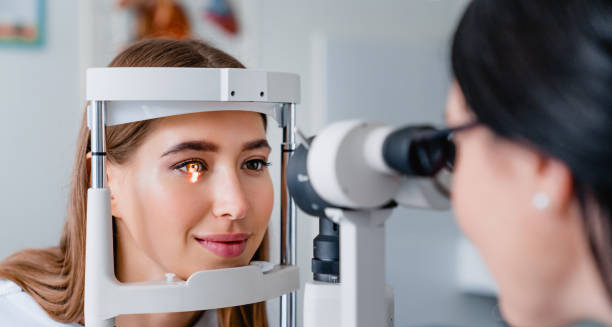Diagnosis of Charles Bonnet Syndrome
Diagnosis of Charles Bonnet syndrome is based on clinical evaluation and a careful review of the patient’s medical history. There is no specific test for Charles Bonnet syndrome, so healthcare professionals rely on recognising the symptoms and ruling out other causes of hallucinations.
1. Medical History
Doctors begin by asking about the nature of the hallucinations:
- What do you see?
- How often do they occur?
- Do you hear anything?
- Are you aware they’re not real?
These questions help distinguish Charles Bonnet syndrome from conditions like dementia, schizophrenia, or delirium.
2. Vision Assessment | Diagnosis of Charles Bonnet Syndrome
A detailed eye examination is essential. The clinician will look for underlying conditions such as:
- Macular degeneration
- Glaucoma
- Diabetic retinopathy
- Cataracts
If the patient has known vision loss and vivid visual hallucinations without signs of cognitive decline, Charles Bonnet syndrome becomes a likely diagnosis.
3. Cognitive Testing
To rule out mental health conditions, basic cognitive screening tests such as the Mini-Mental State Examination (MMSE) or Montreal Cognitive Assessment (MoCA) may be performed. If these tests show no signs of cognitive impairment, psychiatric conditions are less likely.
4. Neurological Examination
A neurological assessment ensures there are no signs of stroke, brain tumours, or neurological diseases that could also cause visual hallucinations. If needed, an MRI or CT scan may be performed, especially in new or unexplained cases.
5. Psychiatric Assessment (If Necessary)
If there’s any concern that hallucinations might be caused by a psychiatric disorder, referral to a mental health specialist may be made. However, in Charles Bonnet syndrome, there are no delusions or confusion, and the individual remains rational.
6. Diagnosis by Exclusion
Charles Bonnet syndrome is diagnosed by excluding other causes. When the patient has visual hallucinations, normal cognition, and significant vision loss — with no psychiatric or neurological explanation — the diagnosis is confirmed.
Timely diagnosis of Charles Bonnet syndrome reassures the patient and family, prevents unnecessary treatment, and allows healthcare providers to offer appropriate support and education.
[Next: Treatment of Charles Bonnet Syndrome →]


